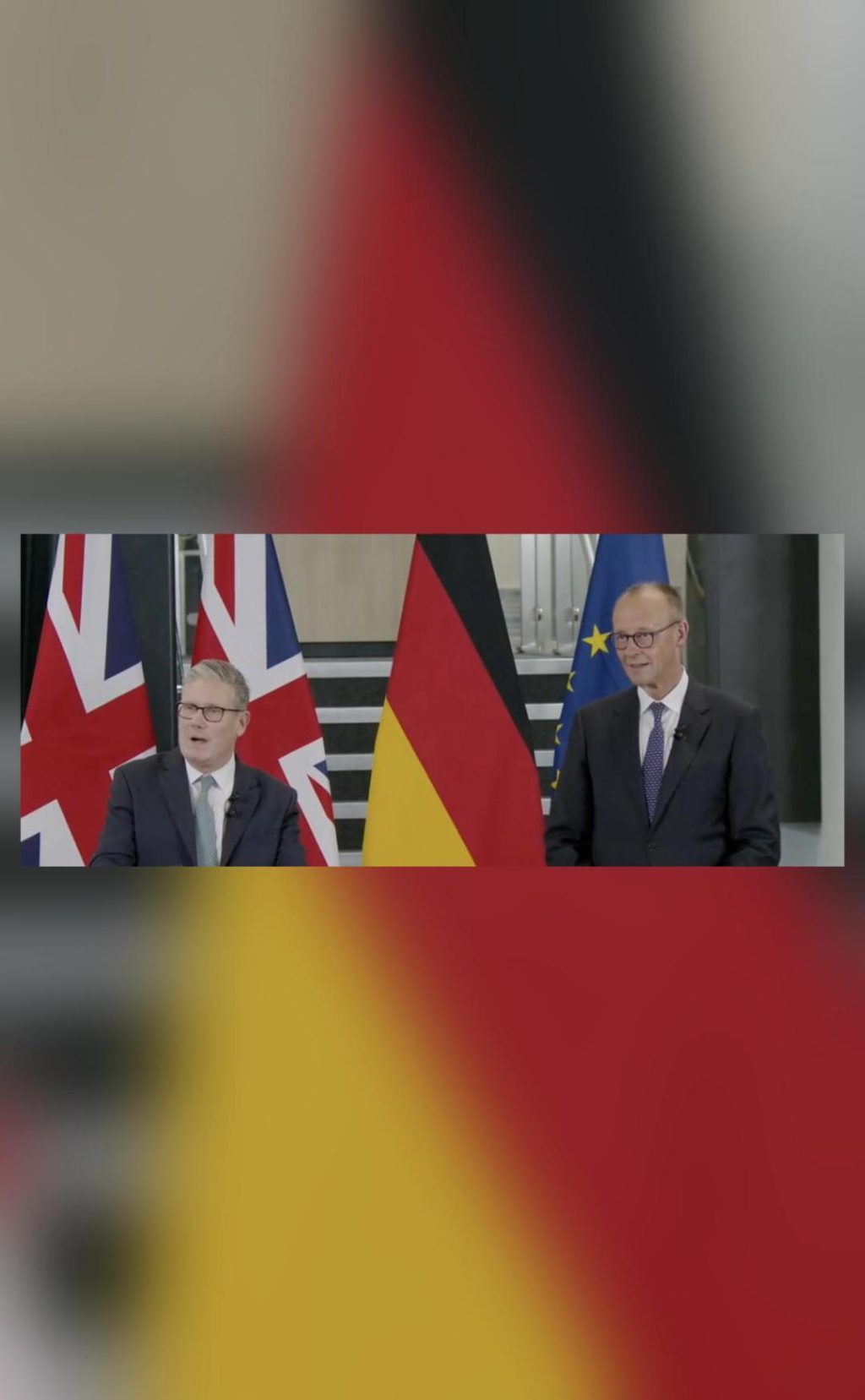
UK, Germany Sign Treaty to Enhance Defence & Migration Cooperation
In a significant step towards strengthening bilateral ties, British Prime Minister Keir Starmer and German Chancellor Friedrich Merz recently signed a treaty aimed at boosting defence and economic cooperation, as well as jointly tackling migrant smuggling. The historic pact marks an 80-year milestone since the end of World War II, signaling a new era of cooperation between two of Europe’s leading nations.
The signing of the treaty took place on July 16, 2025, and was hailed as a major achievement by both leaders. In a joint statement, Starmer and Merz emphasized the importance of cementing their nations’ friendship and deepening their ties in the face of emerging threats. The treaty is a testament to the enduring relationship between the UK and Germany, built on shared values, a strong economic foundation, and a commitment to promoting peace and stability in the region.
Boosting Defence Cooperation
One of the key aspects of the treaty is the enhancement of defence cooperation between the two nations. The pact aims to strengthen their defence and security ties, enabling them to tackle common challenges and threats more effectively. This includes the sharing of intelligence, joint military exercises, and increased cooperation on counter-terrorism and cyber-security.
The UK and Germany have already made significant strides in defence cooperation, with both countries playing key roles in NATO and the European Union’s Common Security and Defence Policy (CSDP). The new treaty builds on these foundations, providing a framework for further collaboration and coordination.
Jointly Tackling Migrant Smuggling
Another crucial aspect of the treaty is the agreement to jointly tackle migrant smuggling. Both countries recognize the importance of addressing this complex issue, which has significant humanitarian, economic, and security implications. The pact includes plans to enhance information sharing, increase cooperation on border management, and implement joint operations to disrupt smuggling networks.
The UK and Germany have a long history of cooperation on migration issues, with both countries being major destinations for migrants and refugees. The new treaty provides a platform for them to work together more effectively, sharing best practices and expertise to address the root causes of migrant smuggling.
Economic Cooperation
The treaty also includes plans to strengthen economic cooperation between the UK and Germany. This includes the establishment of a new direct rail connection, which will boost economic and people-to-people ties between the two nations. The rail link will facilitate the exchange of goods and services, creating new opportunities for businesses and individuals.
The UK and Germany are two of the largest economies in the European Union, with strong trade and investment links. The new treaty aims to build on these foundations, promoting greater economic integration and cooperation.
Connectivity and People-to-People Ties
The treaty places a strong emphasis on strengthening connectivity and people-to-people ties between the UK and Germany. This includes plans to increase cultural exchanges, promote education and research cooperation, and facilitate the movement of people between the two countries.
The UK and Germany have a rich cultural heritage, with a long history of artistic, literary, and musical exchanges. The new treaty provides a platform for them to celebrate and deepen these ties, promoting greater understanding and cooperation between their citizens.
Conclusion
The signing of the treaty between the UK and Germany is a significant development in the history of their relationship. The pact marks a new era of cooperation and collaboration, built on shared values, a strong economic foundation, and a commitment to promoting peace and stability in the region.
As the UK and Germany face emerging threats and challenges, this treaty provides a framework for them to work together more effectively. By boosting defence and economic cooperation, jointly tackling migrant smuggling, and strengthening connectivity and people-to-people ties, the two nations can build a brighter future for themselves and their citizens.



